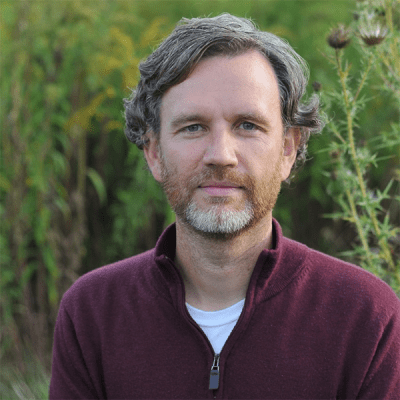
I recently listened to a podcast episode about designing teams and effective teamwork strategies(link is external). The podcast, Design Thinking 101(link is external), is fabulous and I recommend subscribing.

I recently listened to a podcast episode about designing teams and effective teamwork strategies(link is external). The podcast, Design Thinking 101(link is external), is fabulous and I recommend subscribing.

With the holiday season fully underway, many of us are busy looking for the perfect gifts for our family and friends. I have been reminded repeatedly that our most important gifts are the ones that don’t cost money. Our most important gifts are when we are in service to each other in small ways.
It is fully listening when another person is talking. It is seeing the person and affirming that they are valued and appreciated. It is a smile or greeting when we see another person. It is remembering to ask about someone’s family or pets. It is texting or calling a friend to just let them know you are thinking about them.
As my husband reminded me recently, instead of asking for blessings, we should be asking how we can be a blessing to others.
I wish you all a joyful holiday and hope you look for every opportunity to give the gift of service to others in small but meaningful ways.

Each morning my leadership team does a quick standup meeting to coordinate and connect. At the end of each week we also share one thing that we are grateful for or learned during that week. A video shared during last Friday’s meeting got me thinking about the labels we give ourselves and others.
Senior Relationship Manager Will Mills(link is external) shared this short video(link is external) as a primer for a Diversity, Equity, Inclusion and Justice workshop we were participating in later that day about our identities and explicit bias.
One of the workshop activities was to list adjectives we use to describe ourselves, then pick out the characteristics that we dwell on the most and the least. Many people in the workshop found that the labels they thought about most were the ones that they were most self-conscious about. If a person felt judged by others for a piece of their identity, they focused on that piece the most.
The video and my experience in the workshop showed me that judging ourselves and others can be entirely unspoken, but highly impactful. We are constantly receiving (and assigning) labels. What if we focused on the positive instead of the negative?
As we head into Thanksgiving, I am reminded of a saying that sits over my friend’s door that is so important, especially in how we talk to ourselves:
“Be Kinder Than Necessary”
It is true that every person is both amazing and flawed. Do you focus on the amazing or flawed parts when you interact with yourself and others?

As part of my onboarding at Ohio State, I am embarking on a listening tour and getting to meet leaders from across campus. It is so much fun and inspiring to meet so many committed and talented people. This approach, outlined in The First 90 Days(link is external) by Michael Watkins, is an excellent way to understand an organization, even if you are not new to it.
The format for each interaction is generally the same. I ask whoever I am meeting with to describe their role and what their team does. I continue by asking them to discuss their strategic goals and what they are concerned about. Many people are surprised that I don’t want them to focus on technology needs, but talk more broadly about what they are trying to accomplish and understand the impact they are trying to make. I also try to minimize the time that I spend talking about me. I end each interview asking the following questions from the book.
I am only partially through the listening tour, but the insights that I have already gained are really helpful and the interactions are energizing. I have appreciated the graciousness of individuals who are open to being my friend in addition to my colleague as I adjust to a new job and home. I have also loved some unexpected perks, like the squash and honey from my tour of the Waterman Farm Complex(link is external).
When is the last time that your primary focus in a meeting was to listen and learn?


Photo from Boston University: https://www.bu.edu/sph/profile/david-jones
I got the news of David’s fatal accident while I was shopping. My son looked on in concern as I started muttering, “no, no, no, no….” and thinking, not David and what about his wife, Sarah, and their three beautiful children. David was an incredible person and wonderful husband and father. He was so alive and vibrant and good.
David had been training for a marathon and his training run had ended in his death as a subway staircase collapsed under him. The stairway had been closed for several months because it needed repair. But David went on the stairs, and they collapsed.
When I was younger, I would have wanted to assign blame to convince myself that there were things I could do to assure that something similar didn’t happen to me. The city was to blame for not repairing the stairs sooner, someone must have removed the barrier, so David wasn’t even aware of the danger, or David didn’t think that he by himself was enough stress on the stairs, so he ignored the warning.
But the truth is that it could have just as easily been me. Accidents happen. I regularly ignore barriers on my bike and ride across bridges that are closed to traffic. Assigning blame won’t bring David back or make me feel better.
My deep sadness is for Sarah and their children. They are going to miss David so much and his loss will shape them and will be part of their journey and growth.
After the tragic death of my niece and nephew, my sister-in-law struggled for years and is now a grief coach(link is external). She wrote about her journey back to joyfully living in her book, Miracles in the Darkness: Building a Life After Loss(link is external).
I have been so sad this last week whenever I think about David and his family. The best tribute that I can think of to honor David is to try to live like he lived.
David, you will be missed!